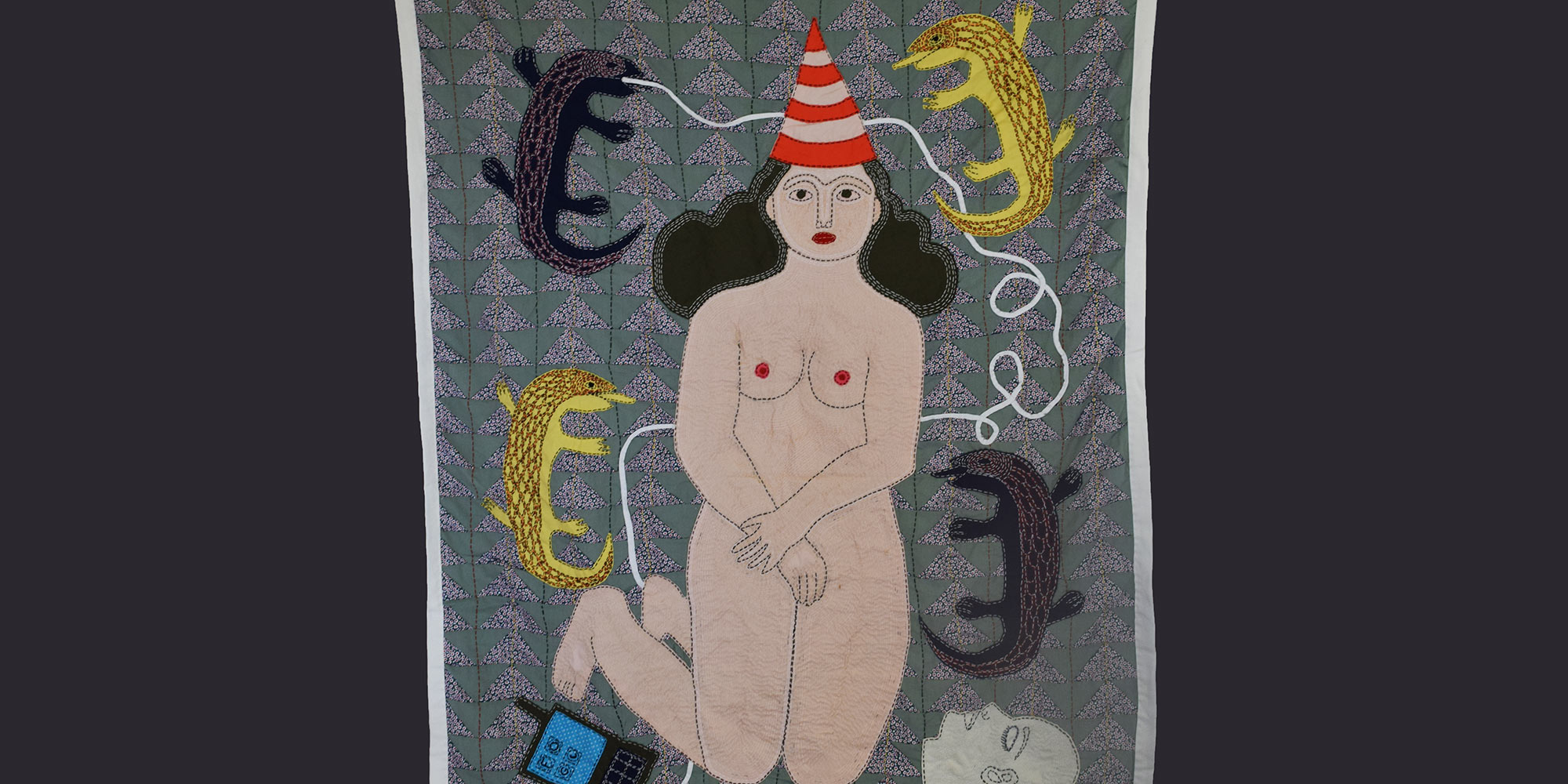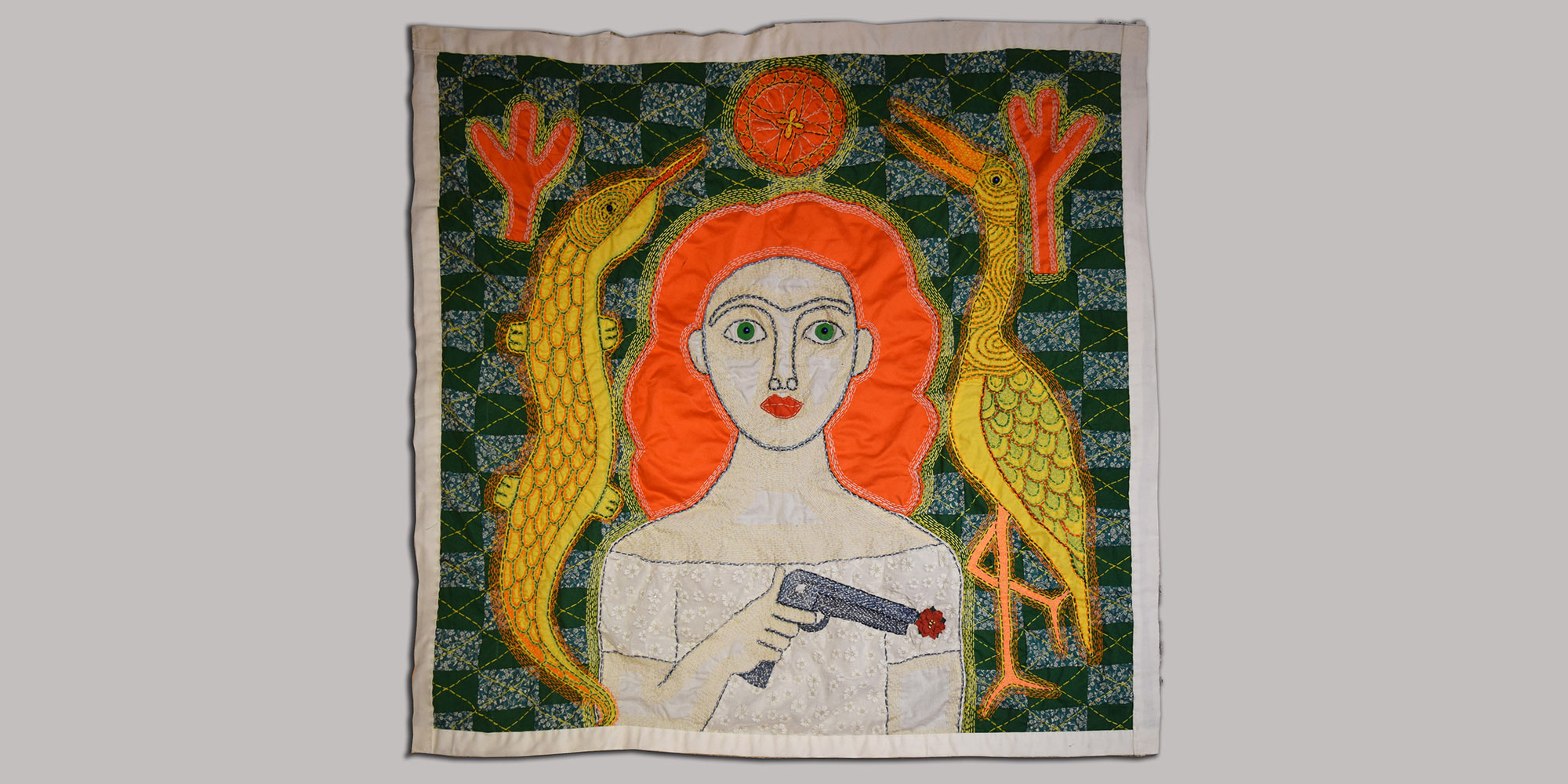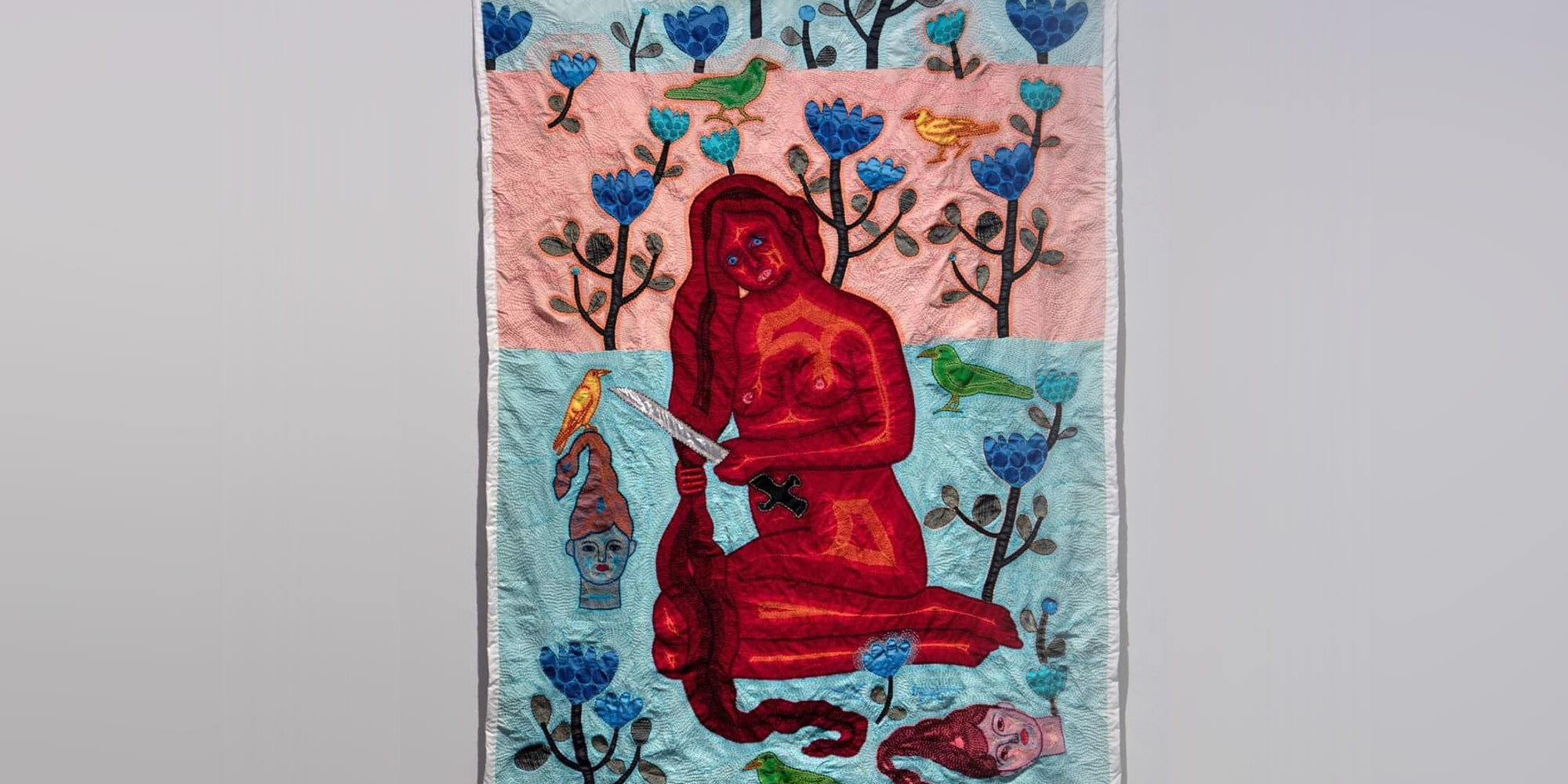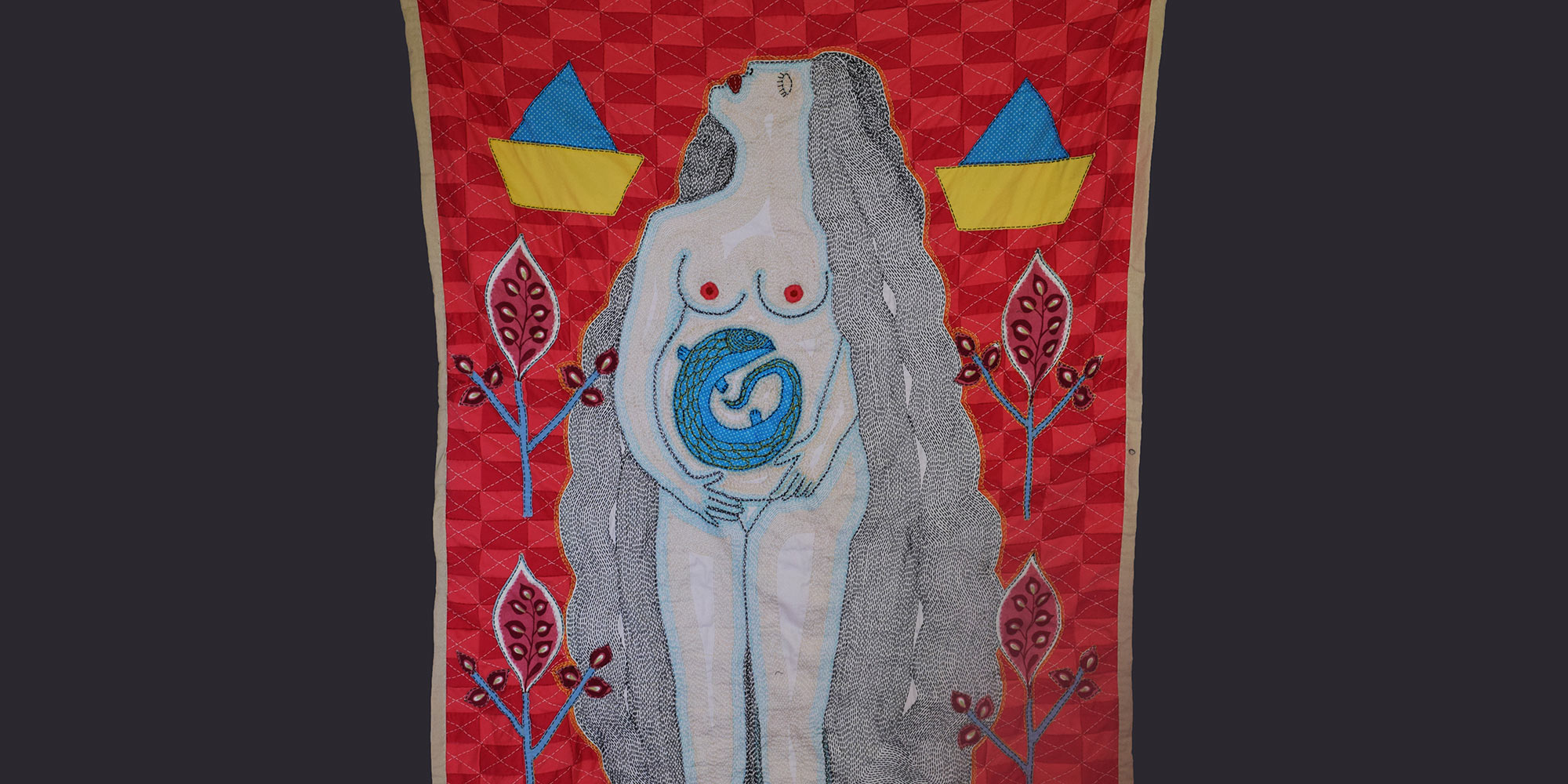“Hawash’s vibrant, large-scale textiles “jodaleias” radiate with symbolism. Hand-sewn in traditional Iraqi technique, they inflect the life, dreams and nightmares of a woman escaping an oppressed and repressive society. Forbidden from the academy, she mastered craft, working in archaeological and natural motifs. On reaching Helsinki in 2017, tradition gave way to bold demonstrations of freedom: A jodaleia portraying a naked woman. With a traffic cone on her head. The trauma of a haircut with a dragger. The artist mounted on a white horse, rearing over a chess board – her mind in free flight from the safety of the carpet of her new home.”
Jury Statement
The project is based on defending women and their freedom and combating oppression and violence in the Middle East. Women are subjected to the most severe types of marginalization. Therefore, the project is depicted through a purely feminist technique that women in the Middle East adopt to furnish homes. But here I put a woman’s voice, her image and her awareness, which express her desires and opinions. Her demands for freedom are made through the oldest craft method, she made her voice by re-making the house and furnishing it.
The works are based on stories of violent societal customs and beliefs and women’s confrontations with these practices, which include violence, rape and confiscation. By portraying women in both their violent and poetic worlds, these are stories of women told in their own voices.
Kholod Hawash
Kholod Hawash is a self-taught textile artist born in Basra, Iraq, in 1977. Her work is inspired by the heritage and archeological landscapes of the region she is from. Its bold symbols and forms convey strong local narratives.
Kholod began a residency with Artists at Risk in Helsinki in January 2019, where she is currently based. Her works are now in Finnish museums. She has received grants from Finnish art foundations. She was awarded the William Thuring prize, as best artist.
Support received from:
Kone Foundation, FINLAND



